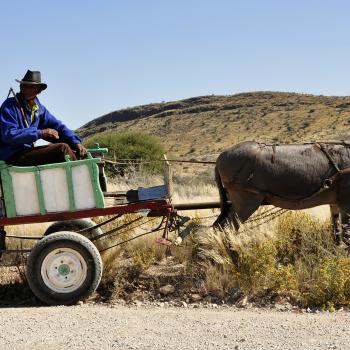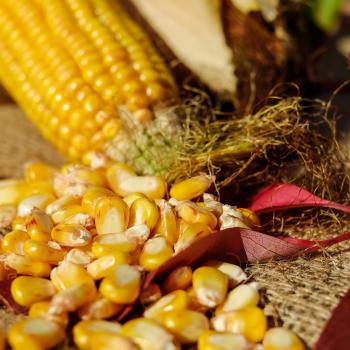This chapter starts out with mundane tasks at home. Even though everything was the same, something had changed, since Marty and Clark’s romp in the garden. Marty is struggling with all sorts of “perplexing thoughts and feelings.” I’m not sure what’s so very perplexing. Clearly, Marty is starting to have some feelings toward Clark—and he toward her. What Marty has to decide is whether she wants to stay with Clark or leave. But instead we get stuff like this:
She longed for things to stay the same as they had been and at the same time feared that they might. Oh my, she mourned, what’s happenin’? What’s gonna happen…?
Marty is no spring chicken. She sat through Ma’s whole story about how she fell in love with Ben over time. She’s been in love before. I just don’t feel like Oke is doing particularly well with this part of the story. I’d be interested in seeing Marty trying to figure out whether she wants to stay, and see where things go with this, or leave, and we don’t get that at all.
But that’s not the point of this chapter. The title of this chapter, after all, is “Sorrow.” What sorrow? Well. About that.
One morning, Marty goes out to the garden and notices, while outside, that the apple trees are in bloom. She immediately wants to tell Clark, because she’s suddenly extremely excited at the idea of apples, but of course Clark is in the fields, planting.
Then she was surprised to see him coming toward her in long, purposeful strides.
“Clark,” she called eagerly. “Clark, come see.”
With her eyes fixed on the tree, she reached for his hand to draw him closer.
“Look, Clark,” she enthused. “Apple blossoms. We’re gonna have apples. Jest look.”
There was no answer. She looked up in bewilderment at the silence. Clark stood looking down at her, his face pale, and she could read such sorrow in his eyes. Her heart contracted with fear.
“What … what be wrong?” she whispered through trembling lips.
He reached for her then, placing a hand on each shoulder, and looked deeply at her as though willing her some of his strength to help her bear the news he was bringing.
“It’s Laura. They done found her in the crik over by the Conners’ cabin.”
“Is she … is she …?”
“She be dead, Marty.”
She sagged against him, her hand pressed to her mouth.
“An’ Ma?” she finally asked.
“She be needin’ ya.”
And then she was sobbing, her face against his chest. His hands smoothed her hair as he held her close. She cried for Ma, for Laura, for Be, even for Sally Anne.
Oh, God, she prayed. Ya be the only one to be helpin’ at a time like this. Help us all now. Please, God, help us now.
Laura is dead. God didn’t save her. But then, I don’t think Oke ever saw Laura as worth saving. Laura did a bad thing, and got what was coming. This plot line—and the way it’s treated—may be the most realistic in this entire book. That doesn’t make it any less horrific. I’m reminded of how much scarier I found Alias Grace than the Handmaid’s Tale (I’m not the only one). Girls like Laura got ground up and dumped aside.
Marty’s sorrow is almost entirely for Ma, not Laura. Marty never took the time to get to know Laura, despite noticing how left out and second-place Laura felt. Nowhere in this chapter does Marty mourn the life cut so short. Instead, her focus is on Ma’s grief.
Laura’s body was brought to the Graham’s sometime after Marty arrived. Ma is absolutely hysterical, holding Laura’s body in her arms and weeping. Ben’s grief is—Oke tells us—-perhaps even greater, but he “did not feel the same freedom to express it,” instead bearing an “ashen face” written over with “bewilderment and grief.”
And then we get this bit:
Ben insisted on riding over to the Conners’ cabin. Unbeknownst to him, Clark had already been there. He had found a very drunk Milt, who swore he knew nothing of Laura’s death. He may have roughed her up a bit, he admitted. But she was quite alive when he’d last seen her, he insisted. Clark had convinced Milt in no uncertain terms that he would be wise to move farther west and to do so immediately.
Clark rode over again with Ben, making no mention of his previous visit. The cabin looked to be deserted for good and in a great hurry. Clark told Marty later that he was very relieved Milt had already gone, fearing what Ben might have done in his present state.
What would Ben have done? Killed Milt? Isn’t this how justice worked on the frontier? It’s pretty obvious Milt is guilty of Laura’s death here. If the nearby town was large enough to have a sheriff or some sort of law enforcement officer, perhaps Milt would have been taken there—probably roughly—and locked up for trial. He might have been sentenced to hang.
Why is Milt seeing some sort of justice for his crime such a bad thing? Did Clark even consider for a second that Milt might head further west and then do the same thing, with another woman? Why was ensuring Milt’s freedom more important to Clark than Ben’s desire for vengeance? Oke does not explain. At all. The above is literally all we get.
The only innocent explanation I can think of is that Clark was afraid Ben would murder Milt and then be tried and hung for the murder. But if that were the case, I would expect Clark to get the sheriff or take Milt directly to jail himself, before Ben got to him. And if there’s no sheriff and no jail for Milt, there probably wouldn’t be for Ben either if he killed Milt. Further, I’m pretty sure that during this period there was fairly wide latitude for men who killed or otherwise attacked men who had done wrong by their girlfriend, wife, or daughter.
So there it is. Laura is dead, and Milt has flown the coop. There is no suggestion anywhere in this chapter that anyone feels they have any responsibility in what happened to Laura. I’ve felt, through this entire episode, that this subplot has been humanizing Ma—revealing that she’s not as perfect as everyone sees her, that she has her own faults and foibles.
But I don’t think Oke sees it like this.
Ma, whose wisdom and care had comforted many a neighbor in tragic circumstance,s once again said through her tears that time was the answer. This time she was saying it to herself.
With a few tweaks, this book could be a cautionary tale of the cruelty of the west, and the role patriarchal beliefs and local communities played in chewing up and spitting out girls like Laura. Ma and Marty would be just as they are now, and even Sally Anne might be somewhat scornful, everyone turning on Laura and interpreting her death and absence in ways that are transparently horrific to those outside of the story and its lens, but invisible to those within. Unfortunately, this was no commentary on the forces that doomed Laura.
This chapter was titled “sorrow.” In a different book, a sort of “14 Reasons Why” take, the title might be “sorry,” as each character realized the actions they’d taken—or not taken—that had inadvertently sent Laura to her death. Perhaps, at the very least, they could resolve to do better by her younger sisters, making a promise to never let this happen again.
And with that, next week we return to our regularly scheduled program: Marty’s life on her well-tended farm, with her considerate husband and the blossoming of love between them.
I have a Patreon! Please support my writing!















